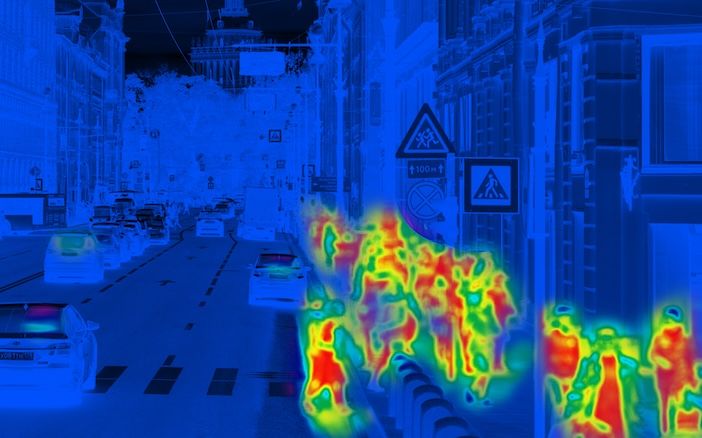The Michigan Department of Transportation (MDOT) will receive $551,732 in funding from the USDOT’s FHWA to install thermal imaging cameras on public transit vehicles.
The grant, which has been provided under the Advanced Transportation Technology and Innovation (ATTAIN) program, will pay to install innovative cameras to improve detection of vulnerable road users, like pedestrians and bicyclists, in a variety of lighting conditions and operating environments.
“We are very pleased to have received this grant from our federal partners to improve safety, which ultimately could be a game-changer for public transit agencies across the country,” says Jean Ruestman, MDOT Office of Passenger Transportation administrator. “While some high-end automobiles have thermal cameras, no transit vehicles currently have this technology, so my staff worked hard in researching this technology, making contacts and applying for this grant to make it a reality.”

Located in both rural and urban environments, the initial partner transit agencies will test out the functionality on up to 60 transit vehicles, ranging from vans to large motorcoaches. These agencies include Blue Water Area Transit, the City of Alma, Community Action Agency of South Central Michigan, and the Regional Transit Authority of Southeast Michigan (RTA) with their service provided by Indian Trails.
Crashes between vulnerable road users and transit vehicles are a top safety concern. In September 2023, the USDOT Federal Transit Administration issued “Safety Advisory 23-1: Bus-to-Person Collisions,” recommending that transit providers consider mitigation strategies to reduce the likelihood and severity of bus collisions with pedestrians, bicyclists and micromobility users. Data from the National Transit Database shows that bus-to-person collisions accounted for 15% of fatalities from 2008 to 2021.
“The City of Alma and our City of St. Louis, City of Ithaca and Pine River Township Authority (SLIPR) partners are excited to join MDOT in implementing thermal camera systems in our buses and vans,” says Brett Baublitz, Alma Transit Center transportation director. “As a college town and a multimodal community with pedestrians, bicyclists and an ever-growing population of electric bicycles, unleashing this new technology will help prevent pedestrian/vehicle conflicts and save lives,”
“The City of Alma and surrounding service areas also have a large whitetail deer population. The thermal camera systems will save on vehicle repairs by detecting oncoming deer earlier to avoid crashes. This reduces vehicle downtime while maintaining accessibility to our riders by keeping our fleet on the road.”
The other project partners are:
Magna Electronics Ltd.: Manufacturer of the thermal imaging cameras.
Lynred: Manufacturer of the thermal sensors used in Magna’s cameras.
Menlo Innovations: An Ann Arbor-based custom software design and development company that will conduct an independent evaluation for each transit provider, then generate reports to assess the effectiveness of the technology, and identify challenges and best practices.





